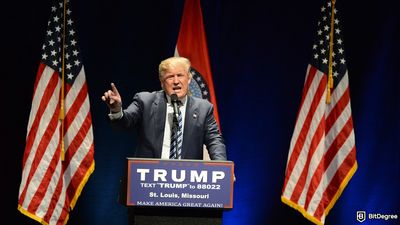IMF's recent report highlights the agency's rather positive stance towards cryptocurrencies and CBDCs.
The International Monetary Fund (IMF), a major financial agency of the United Nations and an international financial institution, has emphasized the necessity for crypto regulation while cautioning that a total prohibition might not be the ideal strategy.
In a report released on June 22nd, focusing on Latin America and the Caribbean, the IMF cited varying tactics utilized by governments to deal with the rise of cryptocurrencies and Central Bank Digital Currencies (CBDCs).

Did you know?
Want to get smarter & wealthier with crypto?
Subscribe - We publish new crypto explainer videos every week!
What is Impermanent Loss in Crypto? (Explained With Animations)


The IMF believes that instead of banning crypto, governments in Latin America and the Caribbean should focus on addressing the needs of digital asset users and increasing transparency among crypto-related transactions.
While a few countries have completely banned crypto assets given their risks, this approach may not be effective in the long run. The region should instead focus on addressing the drivers of crypto demand, including citizens’ unmet digital payment needs, and on improving transparency, by recording crypto asset transactions in national statistics.
The IMF highlighted that nations such as Brazil, Argentina, Colombia, and Ecuador, all currently in the process of regulating crypto, are among the global leaders in embracing digital assets.
These countries leverage digital assets to address issues of financial inclusion, facilitate faster and cheaper payments, among other use cases.
According to the IMF, most central banks in Latin America are either contemplating or already on the path of adopting digital currencies. In its report, IMF added that CBDC could only benefit nations in both regions.
If well designed, CBDCs can strengthen the usability, resilience, and efficiency of payment systems and increase financial inclusion in <Latin America and the Caribbean>.
It is worth noting that since September 2021, El Salvador has recognized Bitcoin (BTC) as a legal tender, while the Bahamas was the first to launch CBDC, known as the Sand Dollar, in October 2020.
This guidance from the IMF underlines the importance of creating a balance between enabling technological innovation in the realm of digital currencies while ensuring adequate regulatory measures to protect consumers and maintain financial stability.
However, not all suggestions from IMF are taken into account by various institutions around the world. In May, the Reserve Bank of Zimbabwe sold 14 billion Zimbabwean dollars worth of gold-backed digital tokens, despite IMF's warning not to do so.






















